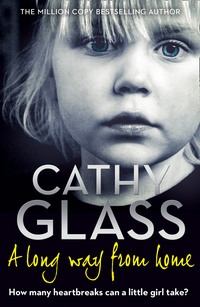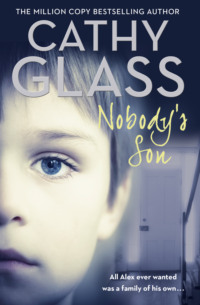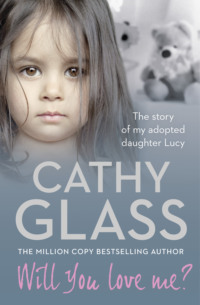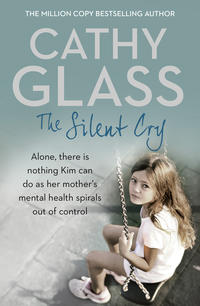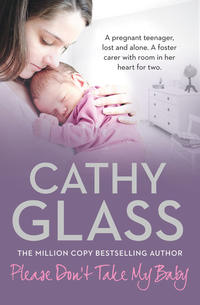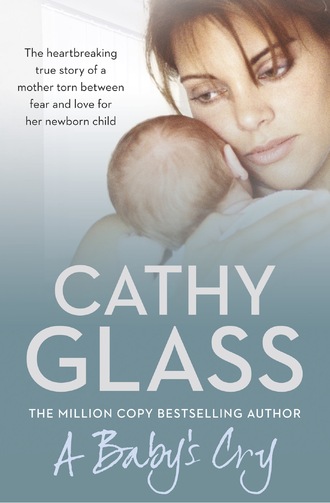
Полная версия
A Baby’s Cry
Cheryl paused to take a sip of her coffee and I sat, very quiet and still, waiting for her to continue.
‘Rihanna was not what I expected,’ Cheryl said. ‘She is a mature woman with a successful career and a very responsible job. She is normally level-headed but because of the circumstances she found herself in she was very distressed and couldn’t think straight. She was five months pregnant at the time, so it was too late for a termination and I doubt she could have gone through with that anyway. She said she wanted her baby adopted and agreed to cooperate with the social services as long as I was the only social worker she had to deal with. I had to explain there was certain information I would have to share with my manager – in the strictest confidence – and Rihanna accepted this. When she told me her situation I completely understood why she was so distressed and the strict rules she had put in place to protect her identity. Her fears for her safety are very real.’
‘But are they really?’ I asked, seizing the opportunity as Cheryl paused to finish her coffee. ‘I appreciate you can’t divulge the details but I find it incredible that a woman’s life can be in danger because she has a baby, in this country in this day and age.’
Cheryl put down her coffee cup and met my gaze, her expression very serious. ‘So did I to begin with, but once Rihanna had told me her full story I believed her. Her fears are real.’ She paused, her gaze flickering around the room before returning to me. ‘Cathy, I’m sure no one knows where Harrison is, and I’ve gone to great lengths to protect Rihanna’s identity, but if you do see anyone acting suspiciously in the street outside your house you must call me immediately. And if anyone you don’t know comes to the door and asks about Harrison or his mother, you need to phone the police.’
I looked at her, shocked. ‘But you said no one knew he was here,’ I said, a cold shiver running up my spine.
‘That’s right, and it should stay that way. I just want you to be aware.’
My unease grew. ‘I have two young children,’ I said. ‘I’m not putting them in danger by looking after Harrison, am I?’
‘No. If Harrison’s whereabouts were to become known, which is highly unlikely, we’d move him straightaway. But I’m sure it won’t come to that.’
I wasn’t so sure. I knew of cases where the foster carer’s address had been accidentally divulged to abusive and violent parents and the child had been moved immediately – to protect the child and also the foster family. Although in this case I didn’t know where the threat would come from because Rihanna certainly wasn’t an abusive parent; and Cheryl wasn’t going to tell me, as she’d changed the subject.
‘I met Rihanna a number of times during her pregnancy,’ Cheryl said. ‘I made sure she had her health-care check-ups and I’ll make sure she has her postpartum check-up too.’
‘Good,’ I said, trying to get my thoughts back on track. ‘The health visitor was worried about that. She was also concerned that Rihanna had been missed off the computer system and wasn’t receiving the support she needs.’
‘I’ll phone the health visitor and tell her I’m taking care of it,’ Cheryl said. I nodded. ‘As you know, Harrison will be adopted,’ Cheryl continued, ‘and we’re already pursuing that. We have plenty of approved prospective adoptive parents who have applied. He’ll be an easy baby to place.’
‘I see,’ I said, surprised that the adoption process was moving so quickly. ‘I’m taking plenty of photographs of Harrison, and I’m also beginning a Life Story book for the adoptive parents. Wouldn’t Rihanna like a few photos too? She might feel differently now.’
Cheryl shook her head. ‘I’ve spoken to her solicitor and she says Rihanna is still of the same mind and feels she couldn’t cope with reminders.’
‘Is she living alone?’ I asked, worried for her.
‘I believe so. As I said, Cathy, this is one of the saddest cases I’ve ever had to deal with. Rihanna is a lovely lady who would make a wonderful mother. It’s such a pity she won’t have that chance. I …’ Her voice trailed off and she stared thoughtfully across the room as though she had been about to say more but had stopped herself. ‘Anyway,’ she said after a moment, checking her watch. ‘If that’s everything, I’d better be going. I’ve another meeting soon. Thanks for the coffee and biscuits, and thanks for looking after Harrison. I’ll phone Rihanna’s solicitor when I get back to the office and tell her that he is doing well.’
‘Will you also tell her solicitor I am carrying out Rihanna’s wishes and dressing Harrison in the clothes she bought for him?’ I said. ‘They fit perfectly and he looks very smart. The soft toys Rihanna bought are at the foot of his cot, and his cot is close to my bed so that I can hear him as soon as he wakes at night. Please ask the solicitor to tell Rihanna, Harrison is a very good baby and rarely cries. He’s a delight to look after.’ I stopped as a lump rose in my throat.
‘I will, Cathy,’ Cheryl said. ‘I’ll tell her solicitor and she’ll pass it on to Rihanna. I know Rihanna would want me to thank you for looking after Harrison.’
‘There’s no need to thank me. I just wish things could be different for her.’
‘So do I, Cathy; so do I.’
After I’d seen Cheryl out I pushed Harrison in the pram to the local shops for some groceries I needed. It was a beautiful summer’s afternoon and a joy to walk in the warm air with the birds singing and gardens awash with colourful flowers. My thoughts went to Rihanna, as they often did when there was just Harrison and me, and I was sorry she would never be able to experience the simple pleasure of pushing her baby in his pram on a beautiful summer’s day; or later, when he was a toddler, of taking him to the park, or seeing him open his presents on his birthday and at Christmas. All these occasions create the precious memories we, as parents, have of our children and carry in our hearts forever. Well, at least the adoptive parents, whoever they may be, will be able to enjoy Harrison, I told myself. But whether Rihanna would ever be able to truly forget her son as she’d told Cheryl she was trying to do I doubted. Learn to live without him as the bereaved have to do, maybe, but not forget him. I was sure that would be impossible, just as I never forgot any of the children I’d fostered, even those who’d only stayed for a few days.
When I returned home I put away the groceries and it was time to collect Adrian and Paula from school. I was pleased it was Friday, which meant a break from the school routine, and my parents were visiting on Sunday, when they would see Harrison for the first time. Although Harrison wasn’t my baby my maternal instinct had resurfaced and I felt very proud and protective of him, which was just as well as he kept me up all Friday night for no obvious reason, so that by Saturday morning, far from feeling relaxed at the start of the weekend, I was exhausted from lack of sleep. Adrian and Paula had been woken by Harrison’s cries in the night too, when I’d paced my bedroom with Harrison in my arms trying to settle him, so they were tired and irritable, and bickered at the breakfast table. Then to make matters worse I got the shock of my life when I answered the front door to find a man I didn’t know asking me if I had a baby in the house!
Chapter Nine
Section 20
‘A baby? Here?’ I said. ‘No, you’ve made a mistake.’ Then Harrison let out a cry from his pram behind me in the hall. ‘Well maybe – sort of. Why?’ I asked, my heart starting to pound.
The man in his thirties looked at me oddly, which was hardly surprising considering I didn’t appear to know if I owned a baby or not. ‘It’s just that I found this on the pavement outside your house,’ he said. ‘I thought it might be yours.’ He held up a yellow toy duck, which I recognized as Paula’s. She’d put it in Harrison’s pram the day before and it must have fallen out.
‘Oh yes, thank you,’ I said, smiling. I felt utterly relieved and a complete idiot. ‘That’s kind of you. I’m looking after a baby temporarily,’ I added, not sure if this made it look better or worse. ‘Thank you so much,’ I flustered.
‘You’re welcome,’ he said. He handed me the soft toy, which was only a little dusty from a night on the pavement. ‘I’ve got kids of my own, so I know how precious these toys can be.’
‘Thanks again,’ I said gratefully, closing the front door. But I knew that I needed to remember that, although I would be following Cheryl’s advice to be vigilant, not every stranger who came to my house or I passed in the street posed a threat; otherwise I would soon become paranoid.
Harrison was restless for the whole of Saturday morning for no obvious reason, as babies can be unsettled sometimes. I fed and changed him, winded him, and tried sitting him in the bouncing cradle, laying him in his pram and walking the house with him in my arms, but he refused to settle. Then I remembered that, following my mother’s advice, when Adrian and Paula had been unsettled as babies I’d put their pram in the garden – not so that I couldn’t hear them cry but because fresh air seemed to settle a fractious baby. I returned Harrison to his pram and then pushed it through the sitting room and out through the open French windows, and parked it on the patio. Almost immediately he stopped crying, placated by the new stimuli from being outside: the sights, sounds and smells of the garden and the feel of the fresh air on his face. I raised the pram hood so that the sun wasn’t directly on him and, while Adrian and Paula played further down the garden, I went indoors and cleared away the breakfast things, which were still on the table at 11.00 a.m. With the windows and French doors open I could hear Harrison if he woke and cried, and Adrian and Paula would also tell me if he woke. But when Harrison did eventually wake he didn’t cry but was content to lie in his pram and be entertained by all the different sensations from being outside. It was a good piece of advice from my mother and I know many mothers today do similar.
After lunch we went to our local park. It was a pleasant afternoon and I was looking forward to visiting the park more often when Adrian and Paula broke up from school for the summer holidays in two weeks’ time.
That night Harrison woke at 2.00 a.m. and then again at 5.30. He settled straightaway after each feed so that I had two three-hour slots of sleep, which was fine for me. I went back to bed at 6.00 and dozed off. When I woke it was nearly nine o’clock and it was to the harmonious sounds of Harrison gurgling contentedly in his cot and Paula and Adrian playing in their bedrooms. All three children kept themselves amused while I showered and dressed. Sundays in our house, as in many households, are more leisurely than weekdays, so we didn’t have breakfast until nearly ten o’clock, with Adrian and Paula still in their nightwear. After breakfast the children washed and dressed while I fed and changed Harrison, and by 12.30 p.m. we were all ready for my parents, who were coming for dinner.
Harrison was in the bouncing cradle at one end of the kitchen, watching me prepare the vegetables for later, while Adrian and Paula were in the front room, looking out of the window for their nana and grandpa, who were due any time. Whenever my parents visited Adrian and Paula would go into the front room and look out for them and then call me as soon as they saw their car pull up. They had been in the front room for about ten minutes when Adrian called, ‘Mum!’ But I instinctively knew his call wasn’t because Nana and Grandpa had arrived: I heard excitement in his voice but also anxiety.
‘Yes?’ I called back from the kitchen, pausing from preparing the vegetables. ‘What is it?’
‘Someone’s watching the house.’
I immediately put down what I was doing and went round to the front room. Although Adrian was a nine-year-old boy with a good imagination his worries needed to be taken seriously. I entered the front room and crossed to the bay window. ‘Where?’ I asked, joining him and Paula behind the net curtains.
‘There!’ Adrian pointed.
I looked across the road to the woman standing on the opposite side of the street a few houses up. She was of medium height and build and was dressed in beige summer trousers and a short-sleeved blouse. She wasn’t looking at our house now, but up the street as if she might be waiting for someone. Her face was turned slightly away, so I could only see her profile, but it suggested someone in her late twenties or early thirties with chin-length dark hair.
‘She’s been standing there for ages,’ Adrian said.
‘She’s probably waiting for someone,’ I said. ‘What makes you think she’s watching our house?’
‘She keeps staring over here,’ Adrian said, with the same mixture of excitement and anxiety. ‘She’s stopped now. But she’s been there all the time we’ve been watching for Nana and Grandpa.’
As I looked the woman did indeed look over and possibly at our house or the house next door, but it was no more than a cursory glance before she continued looking up and then down the street.
‘There! Told you,’ Adrian said.
‘She just glanced over,’ I said. ‘I’m sure she’s waiting for someone. There’s nothing to worry about.’
‘It’s all those silly spy comics he reads,’ Paula put in.
‘No, it isn’t,’ Adrian returned.
At that moment my parents’ car drew up and Adrian immediately forgot the woman as he and Paula rushed into the hall, where they waited for me to open the front door. Before my parents were out of the car we were on the pavement welcoming them, and the woman was walking up the street, presumably to meet the friend she’d been waiting for.
We had a lovely afternoon with my parents. Mum chatted to me in the kitchen as we put the finishing touches to dinner. Then after we’d eaten we all went in the garden, as the weather was warm and dry. Mum and Dad were soon as besotted with Harrison as we were, and Harrison spent most of the afternoon on one of their laps being cuddled and fussed over. Mum naturally asked me why Harrison’s mother couldn’t look after him and I replied honestly that I didn’t know. Mum helped me bath Harrison while Dad played badminton in the garden with Adrian and Paula. It was seven o’clock before my parents left, and once they’d gone the children began their bath and bedtime routine, ready for school the following day.
The following week was very busy and flew by. I drove Adrian and Paula to and from school each day. On Tuesday I took Harrison to the clinic to be weighed – he’d put on four ounces, which the health visitor entered in his red book. On Wednesday I had foster carer training run by Homefinders fostering agency, who also provided a crèche so that Harrison was looked after in the room next door while I attended the course. On Thursday I went to Adrian and Paula’s school sports day with Harrison in his pram. He slept for a while and then when the cheering and applauding woke him I held him in my arms so that he could see what was going on. So many outdoor activities in the UK rely on the weather for their success and the weather stayed fine that afternoon, so the annual sports day was a great success.
By the end of the week I felt I had established a good working routine with Harrison and although I was tired – from having two three-hour sleeps instead of one of seven hours – I knew from the experience of having Adrian and Paula that in a few months Harrison should, I hoped, no longer need his 2.00 a.m. feed and sleep through. And to be honest I didn’t mind the early-hours feed, as I hadn’t minded it with Adrian and Paula. I found something quite serene and magical in sitting in bed by the light of the lamp with Harrison in my arms – the two of us quietly alone while the rest of the world slept. It was an oasis of calm and peace in an otherwise busy schedule and Harrison’s little smile when he was full, and his gurgles of contentment as he lay in his cot before falling asleep, more than compensated for any tiredness I felt.
I thought nothing more of the woman we’d seen in our street on Sunday and the week drew to a close with much excitement from Adrian and Paula, as there was only one week left until school ended for summer, or as Adrian put it: ‘Freedom! For six whole weeks.’ He was also in the end-of-year play, which the school staged in the final week. This year they were putting on The Jungle Book and Adrian was one of the vultures. He’d been practising his lines with a Liverpudlian accent at every opportunity: What do you want to do? Don’t know. What do you want to do? Don’t know, etc.
I was, therefore, starting to feel that life was running smoothly again and I needn’t have worried so much about looking after a baby, as I’d successfully accommodated Harrison into our family with minimum disruption to Adrian and Paula. Indeed, they were enjoying helping me look after him and easily forgave him if he was fractious or woke them at night. However, on Saturday morning my complacency and feelings of well-being were shaken.
I opened the front door, ready to leave with the children to go shopping, and became vaguely aware that there was someone on the opposite side of the street. I didn’t think anything of it to begin with, as I was concentrating on Harrison and checking I’d remembered to bring my shopping list, keys and purse, while Adrian and Paula stood behind me in the hall, ready to follow me out. Then I looked up and my heart missed a beat. Although she was dressed in different clothes, I was sure it was the same woman Adrian had spotted the previous Sunday. She was standing in the same place and seemed to be looking over at our house. As soon as she saw me she turned and headed up the street, walking quickly away just as she had done on Sunday.
Closing the front door and with my heart racing I put Harrison, who was in his car seat, on the floor. Could she be connected with Harrison? Had my contact details accidentally been released? It had happened before. Could she possibly be Harrison’s mother? Then something else occurred to me that made my heart thump loudly and my mouth go dry. If a child is in care under an Emergency Protection Order or Full Care Order where there are concerns for the child’s safety then the foster carer’s contact details are not given to the parents. However, Harrison was in care under a Section 20 and I knew that usually with a Section 20 the parent(s) are given the foster carer’s contact details. While Cheryl had stressed that no one knew where Harrison was, it now occurred to me that that might not have included Harrison’s mother or father.
Adrian and Paula, who hadn’t seen the woman this time but had seen me open and close the door, were now looking at me questioningly. ‘Will you keep an eye on Harrison for a minute, please?’ I said. ‘I need to make a quick phone call.’
I left the children entertaining Harrison in his car seat, while I went down the hall to use the telephone in the sitting room. I closed the door to the sitting room so that the children couldn’t hear, as I didn’t want to worry them. Perching on the sofa and wondering if I was over-reacting I dialled Homefinders’ office number. As it was Saturday I knew the call would be re-routed through to the agency’s social worker who was on duty that weekend. A moment later a male voice answered and I recognized it as Michael’s.
‘Hello, Michael, it’s Cathy Glass,’ I said, trying to keep the anxiety from my voice.
‘Hi, Cathy. What can I do for you?’
‘Michael, am I right in thinking that with a Section 20 the parents are usually given the foster carer’s address?’
‘Yes. Usually. Why? Is there something wrong?’
‘I’m not sure. How much do you know of Harrison’s case?’ I asked carefully.
‘Not a lot, I’m afraid. If you explain the problem I can advise you, or I could phone Jill. She’s not on duty this weekend but she won’t mind if it’s an emergency and I can’t help.’
I hesitated. It wasn’t exactly an emergency and while I didn’t want to disturb Jill unnecessarily on her day off, I wasn’t sure it was wise to explain Harrison’s case to Michael. Given the level of confidentiality surrounding Harrison it was possible that only Jill and the manager at Homefinders were aware of his background.
‘Michael, would you mind phoning Jill, please?’ I said. ‘It’s not an emergency but I would appreciate her advice.’
‘OK, if you’re sure I can’t help?’
‘It’s very complicated,’ I said. ‘It would be easier if I talked to Jill.’
‘Of course. I’ll phone her right away. Shall I tell her to phone your landline or mobile?’
I paused. ‘Mobile, please. I’m just going out.’
‘OK. Will do.’
I thanked him and, after replacing the handset, returned down the hall, where Adrian and Paula were still keeping Harrison amused. As I didn’t know how long it would be before Jill returned my call I decided we’d continue with our shopping trip rather than wait in. I’d take Jill’s call when it came through on my mobile.
I opened the front door and checked the street. The woman was nowhere to be seen. Adrian and Paula followed me out of the house and I closed and locked the front door. I checked the street again as the children got into the car and I strapped Harrison in his car seat under the seatbelt. With another glance around I climbed into the driver’s seat and was about to start the engine when my mobile rang. I took the phone from my bag and saw it was Jill’s number. I pressed to answer. At the same time I got out of the car and closed the driver’s door so that Adrian and Paula couldn’t hear what I was saying.
‘What’s the problem?’ Jill asked straightaway.
‘Jill, I’m sorry to disturb you at the weekend, and it may be nothing, but Cheryl said I should report any strangers hanging around in the street. Last Sunday and then again this morning I saw a woman standing across the road, just over from our house. The first time I thought she was waiting for someone but now I’m not so sure. Each time she walked off quickly when I came out of the house. Jill, Cheryl said no one knew where Harrison was but is it possible social services have given my details to Harrison’s parents, as he’s in care under a Section 20?’
‘I shouldn’t think so, given the level of confidentiality,’ Jill said. ‘What did the woman look like?’
‘I didn’t get a very good look at her because each time she rushed off. But I’d say late twenties or early thirties, smartly dressed, average height and build with dark hair and light brown skin.’
Jill went quiet for a moment as I looked in the car window to check on the children.
‘I’ll phone Cheryl first thing on Monday,’ she said. ‘It’s no good me phoning now: their duty social worker won’t know the case. Obviously if the woman or anyone else approaches you or comes to the house, don’t take any chances: phone us or the police. We don’t know who she is or why she’s there.’
‘All right, Jill.’
We said goodbye and I got into the car, slightly spooked by Jill’s warning and her instruction to call the police if necessary.
We continued with our shopping trip but I was vigilant for the rest of the day and indeed that weekend. I checked the street every time we entered or left the house, but I saw no one acting suspiciously.
By Monday morning I was starting to think the woman’s appearance was pure coincidence and was not connected with Harrison. That was until Jill phoned.
Конец ознакомительного фрагмента.
Текст предоставлен ООО «ЛитРес».
Прочитайте эту книгу целиком, купив полную легальную версию на ЛитРес.
Безопасно оплатить книгу можно банковской картой Visa, MasterCard, Maestro, со счета мобильного телефона, с платежного терминала, в салоне МТС или Связной, через PayPal, WebMoney, Яндекс.Деньги, QIWI Кошелек, бонусными картами или другим удобным Вам способом.




